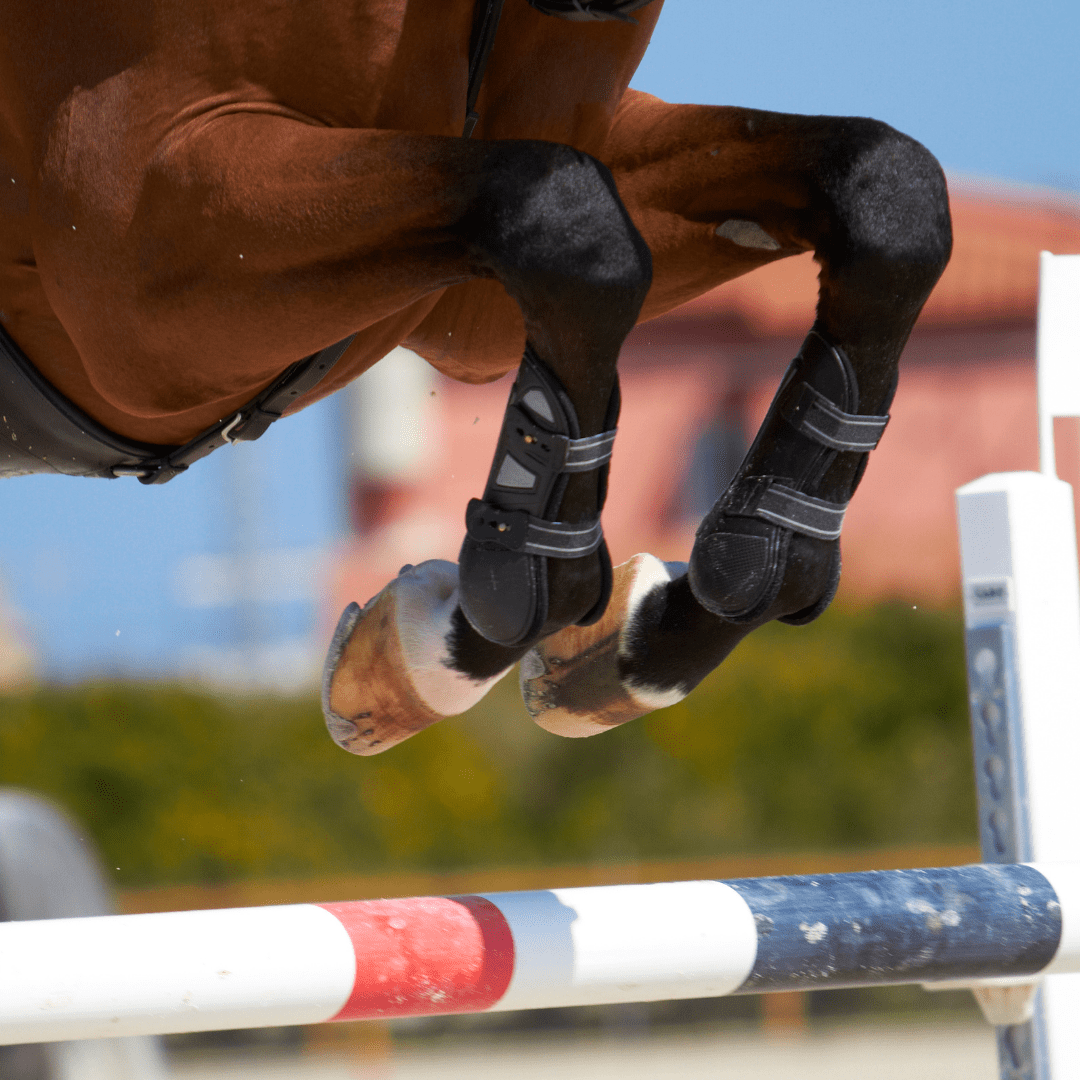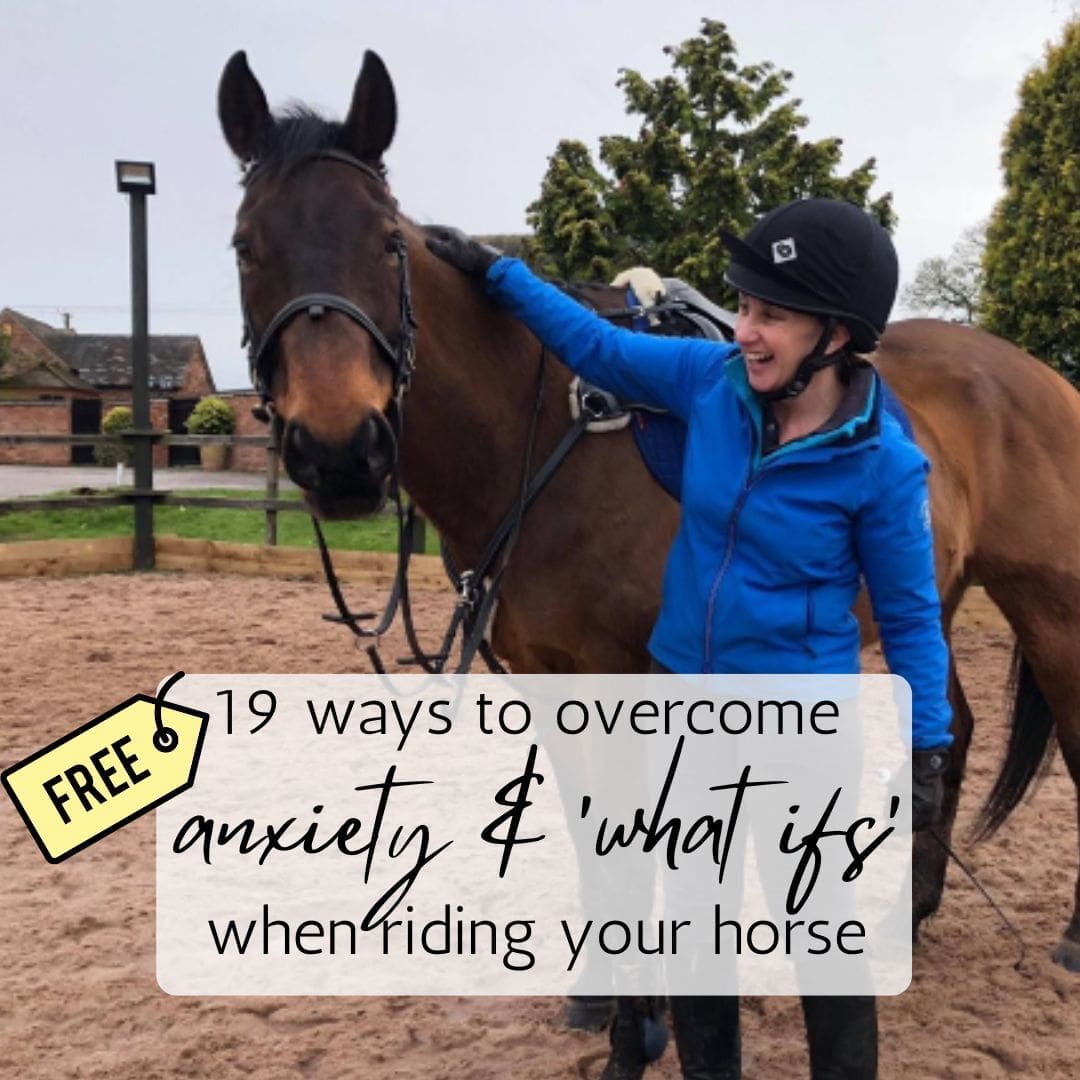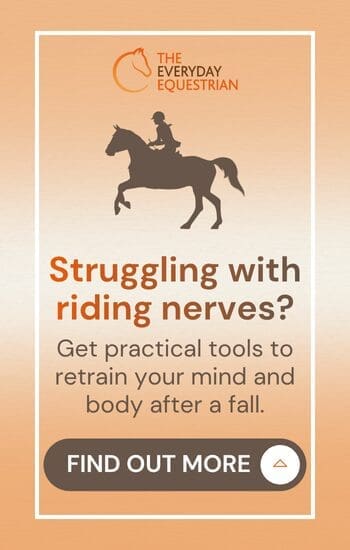Every rider feels nervous from time to time. It is all part and parcel of taking part in a sport where your partner just happens to be 10 times your size, with an unpredictable mind of their own. Most non-horsey people think we are mad and there have been certain odd occasions where I have questioned the reality of riding myself.
Our nerves can kick in at any given time which is especially true when stretching out of our comfort zone. Feeling nervous occasionally is no bad thing since it allows us to experience that huge high and buzz when we do the thing that we were nervous about.
However, feeling nervous about riding can become a real problem when our nerves appear regularly such as in response to a specific situation or activity. It can often have a huge impact on how we progress as riders and can often prevent us from achieving all the things we want to do with our riding.
A one-off bad riding experience can easily escalate into something much bigger and knock our confidence which can lead to nervousness or fear. Everyone’s levels of nervousness vary greatly.
So, when do your nerves show up?
There is a wide range of situations whilst horse riding where nerves may appear. Some of the most common examples include;
- Hacking out
- Cantering
- Jumping
- Competing
- Riding a different horse
- Getting back on after a fall (link to blog)
This is certainly not an exhaustive list and I am sure you can think of some other examples of riding activities or situations where you may have felt your nerves kick in.
How do you feel when you’re nervous?
As individuals, we all have our own unique way of feeling when we are nervous. Some of us may show our nerves more than others do. Just because you can’t always visibly see the symptoms of nerves does not by any means they are not there. Some common examples of how you may be feeling when you are nervous could be;
- Shallow breathing
- Heart racing
- Sweating
- Shaky legs
- Light-headed
- Forgetfulness
- Butterflies in your tummy
- Needing to go to the bathroom
I’m sure you can add to this list from your own experiences.
Nerves are your body’s physiological response to a perceived threat; your body is getting ready to run away or defend itself against the thing you fear.
When you’re feeling nervous, the key thing to remember is that your mind is responding to a perceived threat, whether that threat is real or imagined.
What effect can feeling nervous have on our riding?
Changes in our riding position are one of the most common effects of feeling nervous whilst riding. We often hold our breath, tip forward in our upper body, grip up with our legs, shorten and pull on the reins. This is sometimes referred to as moving into the foetal position. This position is an instinctive response to fear and has the purpose of protecting our major internal organs.
Unfortunately, the foetal position is one of the worst things we can do as riders! At best it makes us insecure and unstable, and at worst quickly tells our horse that there is a Big Thing to worry about and he/she should get ready to run away! This can essentially turn a not-great situation into a very bad one for both you and your horse.
The good news is that there are many things you can do to overcome your nerves when riding! Here are some of my top tips:
1. Recognise your nerves
Practice becoming more self-aware and noticing when you’re feeling nervous. If you don’t realise that you’re experiencing symptoms of nerves and anxiety, you can act to manage and overcome them.
“The first part of finding a solution is recognising that there is a problem”
The quicker you identify your nerves kicking in, the sooner you can act and change how you think, feel, and act. Conversely, the longer you allow yourself to feel nervous, the more difficult it becomes to let go of them.
The key to being self-aware is to gather information about what is going on in your mind without judgment or filtering. Simply notice what is happening as if you are an impartial observer, then you become empowered to act.
2. Slow down
When we’re anxious and nervous, time speeds up in our minds. It can feel like everything is happening on fast-forward! One of the first things you need to do is to slow down. Remind yourself that you always have a choice in what you are thinking, feeling, and doing.
You are in control of you.
Stop, take a minute or two to check in with yourself, notice your thoughts and emotions. Take the time to explore what is happening in your mind, and see how you could change just one thing to help you feel more positive.
3. Change the filter
One of my favourite questions is to ask, “how else could you look at this?”. The film that is playing in your mind is not real. It is simply your mind telling you a fictitious story it has created based on your fear, previous experiences, and imagined threats.
Just because your horse spooked when a bird flew out of a particular tree whilst out hacking, does not mean that it will always happen. I’m sure that you have ridden your horse past many trees, even that particular one, without any reaction at all! It’s simply that your mind is doing a brilliant job of filtering information from your world, but has a tendency to filter out all the positive experiences you have had where your horse has not spooked at all.
So, try changing your mind’s filter by asking yourself better questions, and looking for the positive evidence (and I promise you there will be plenty, you just have to find it) to discredit that negative story that your mind is giving you.
4. Sit better
When we’re nervous, we ride defensively and our body wants to protect itself from accidents, which unhelpfully means that we’re actually more likely to fall! One of the simplest and most effective ways to feel more confident is to sit back on your seat, bring your shoulders back, look up ahead, and relax and lengthen your legs. By riding in a more positive, effective position, we are better able to convince our mind (and our horse!) that everything is absolutely fine.
5. Take smaller steps
When you learn to drive, you don’t go straight out onto a motorway during your first 3 sessions, do you? So why would you think that you should be able to go cantering around an open field straight away, without building your confidence and technique in the arena first?
Whatever it is that you are nervous about, break it down into the smallest possible steps. For example, if you’re nervous about getting on the horse and the thought of mounting fills you with anxiety, then your tiny steps might look like this:
A) Practice bringing your horse to the mounting block calmly and in a relaxed manner
B) Standing on top of the mounting block while your horse stands patiently alongside you
C) Place your foot in the stirrup and feel calm and comfortable
D) With your foot in the stirrup, lean over the saddle a little, feeling confident and relaxed
E) Place a little more pressure on your foot in the stirrup, and notice how the horse stays still and relaxed
F) Visualise swinging your leg over the horse’s hindquarters and sitting down gently into the saddle
The key here is to just practice ONE of these steps each day until it becomes boring and non-eventful, then and only then move onto the next step.
6. Simple reframe
This is one of the most simple and effective ways to reframe your nerves so that you can ride more confidently, positively, and effectively.
Instead of saying to yourself “I’m so nervous, I can’t do this”, change it to “I’m so excited, I can do this”. Your physical symptoms of nerves and anxiety are exactly the same as your physical symptoms of excitement and anticipation!
Try making this your new mantra, so that you can let go of your old nerves.
7. Remember that it’s supposed to be fun
Most of us are never going to go to the Olympics, and that’s OK! If you have lost your love of riding, think about why you ride and what you want to get from it. Working on your values and discovering what is important to you (not anyone else), can help you feel more in control and positive about what you do with your horse and your riding.
For example, if you experience extreme negative emotions around doing a certain thing, then ask yourself why you really want to do the thing. What is driving you? Why specifically do you want to do XYZ? This can be challenging, but you will find answers to help you decide whether it is really important to you or not, and therefore whether you work to find a solution and overcome how you’re feeling, or simply stop doing it!
8. Get help
We are never taught at school how our minds work. When you can get your mind working for you instead of getting in your way, you can do anything you want to. It’s important to recognise that if you are struggling with fear, anxiety, nerves or feeling overwhelmed around your riding, that you will need help and support from a professional to become a confident, positive rider.
Working with a Rider Mindset and Confidence Coach will help you get rid of those old limiting beliefs, and help you learn tools and techniques to help you build a positive mindset so that you can get back to doing what you love.



